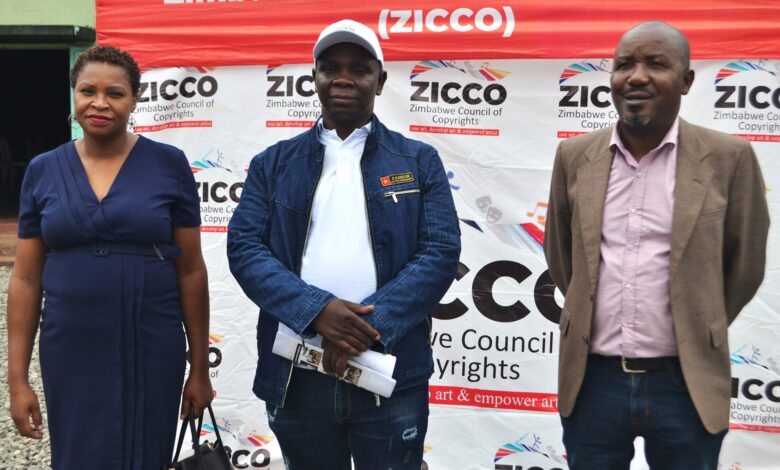Zicco Takes Bold Step to Reform Royalty Distribution in Zimbabwe’s Creative Industry

The Zimbabwe Council of Copyrights (Zicco) has announced a significant overhaul of the country’s royalty distribution system, aiming to correct long-standing imbalances that have disadvantaged emerging and lesser-known artistes. In a move set to promote fairness and transparency in Zimbabwe’s creative sector, the council will begin disbursing a uniform royalty payment of US$50 to its members starting May 30, 2025.
According to Zicco chief executive officer Tafadzwa Masembura, the flat-rate system is based on general music usage, where tracks are commonly played at random in public spaces such as businesses and events. He said the approach is a temporary but necessary solution until a more advanced, playlist-based system is developed.
“This new model, effective from May 30, is a game-changer. It guarantees equitable sharing of royalties. Most of our collections come from general usage, where tracks are played randomly by businesses and event organisers. Therefore, until we have a detailed playlist-based system, we believe a flat-rate payment is the fairest approach,” Masembura told NewsDay Life & Style.
To improve consistency and accountability, Zicco plans to distribute royalties twice a year, during the May/June and November/December periods. Masembura stressed the need for fair opportunities across the board, especially in a climate where other collective management organisations have been criticised for favouritism and opaque practices.
“Our members are comfortable with this payment structure. We operate on collective trust and no one should be short-changed for their contribution,” he said.
He urged artistes to ensure that all registration and documentation is completed on or before May 30, 2025, to be eligible for the upcoming disbursement. Accurate records, he said, are critical to avoid errors or duplication during payouts.
“It’s crucial for artistes to finalise their documentation. This allows us to vet the database properly and avoid duplication or errors in payouts,” Masembura added.
He also advised against dual membership in multiple rights organisations, which he said compromises the integrity of the distribution system. “We encourage loyalty to one organisation. Dual membership only creates confusion and undermines transparency. We know US$50 may seem small, but it’s a start. Our long-term vision includes building sustainable revenue streams and stronger partnerships to increase returns for our members.”
With around 2,000 registered members, Zicco remains in its early stages of growth. However, Masembura said the council’s commitment to equity and transparency through uniform royalty distribution is a bold step toward a more just creative economy. He emphasised that while the current model is transitional, it is designed to benefit as many artistes as possible while more sophisticated systems are developed.




